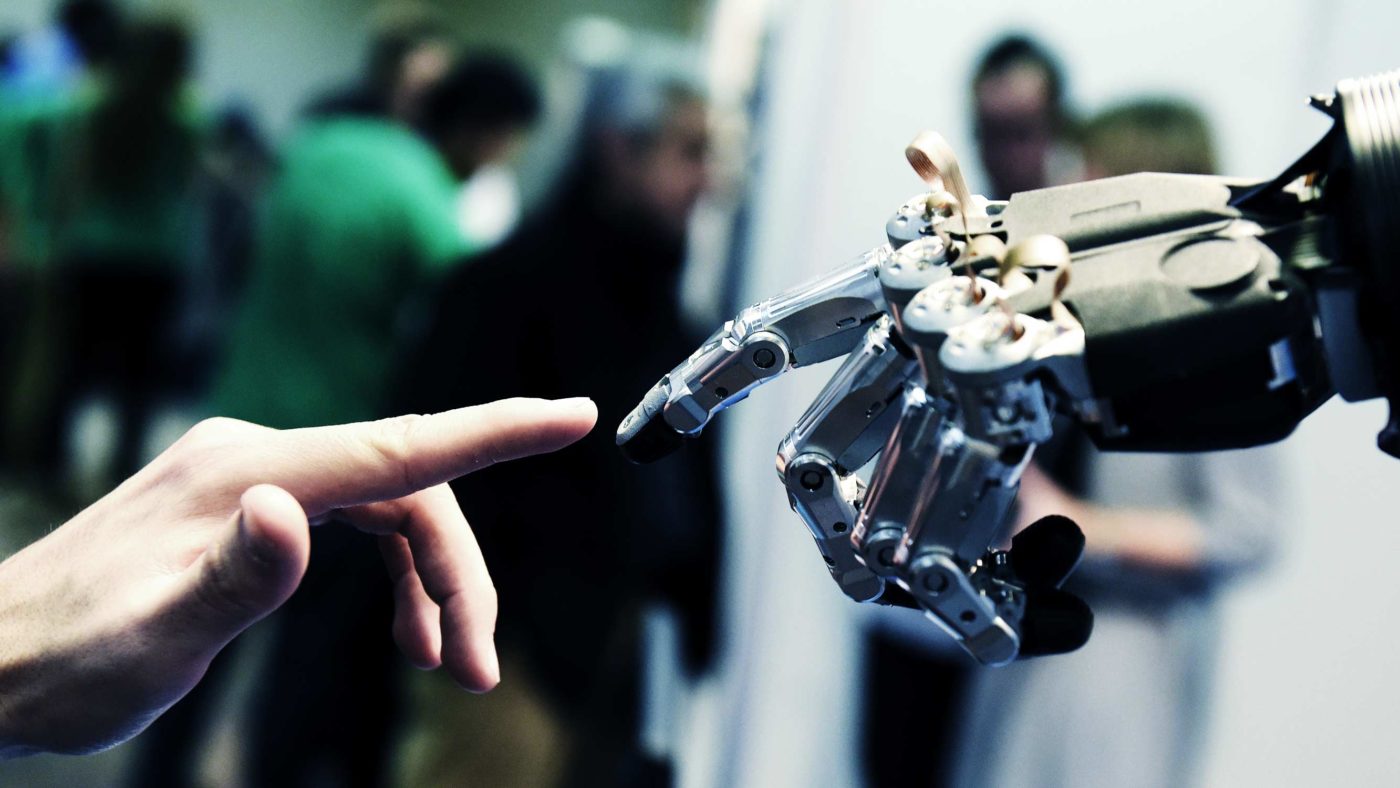In his conference speech today, Jeremy Corbyn set out plans to “manage” robotics and technology “for the benefit of society as a whole”. To this end he wants companies that profit from replacing humans with robots to to pay more tax as he believes that automation is a “threat” to workers.
It would be easy to dismiss Corbyn’s plans as ill thought through and a “tax on robots” might superficially seem unlikely to gain much traction with the electorate. But the Labour leader is playing on deep seated fears about new technologies taking our jobs.
Such concerns are nothing new. When William Lee attempted to patent his stocking frame knitting machine in 1589, he was rebuffed by Queen Elizabeth I who remarked: “Consider thou what the invention could do to my poor subjects. It would assuredly bring to them ruin by depriving them of employment, thus making them beggars.”
In the 19th century the Luddites destroyed weaving machines as they feared that the time spent learning the skills of their craft would go to waste as machines would replace their role in the industry. The damage done by the Luddites was so serious that in 1812 the government introduced the Frame Breaking Act which made destroying the machines punishable by death.
Corbyn is not alone in his views. Bill Gates, for example, also believes that automation is destroying jobs. And he too has argued that governments should tax companies’ use of them as a way to slow down the spread of automation.
The most important question is: will robots actually take our jobs? In their widely cited 2013 paper for the University of Oxford, Frey and Osborne estimated that approximately 54 per cent of jobs are at risk of being lost due to computerisation. However, more recent research by the OECD estimates that only 9 per cent of jobs are at risk from automation across 21 OECD countries. Although this is a much smaller number, this is little comfort for those who stand to be affected.
While it is important to engage with those people anxious about this change, that should not stop us from making the positive case for innovation.
As Joseph Schumpeter pointed out in Capitalism, Socialism, and Democracy, it is entrepreneurship and innovation which grow the economy. Schumpeter rejected the Ricardian consensus that identified productive function with membership in one of the three English socioeconomic classes at the turn of the 19th century: labour from the working class, land from the aristocracy, and capital from the merchant class. Instead he argued that:
It is not [textbook] . . . competition which counts but the competition from the new commodity, the new technology, the new source of supply, the new type of organisation (the largest-scale unit of control for instance)–competition which commands a decisive cost or quality advantage and which strikes not at the margins of the profits and the outputs of the existing firms but at their foundations and their very lives.
For Schumpeter it was innovation which propels the economy with “gales of creative destruction”. It is disruptive entrepreneurs and technologies, an “industrial mutation” which “incessantly revolutionises the economic structure from within, incessantly destroying the old one, incessantly creating a new one.”
When new technologies are introduced then jobs are destroyed. But those technologies also bring countless benefits. For example, they often result in interesting, safer, and more pleasant jobs being created. Moreover, it lifts people out of poverty, increases their standard of living, and results in longer, happier lives.
The technological advances of the latter part of the 20th century were revolutionary. They resulted in jobs in the UK shifting from low-skilled manufacturing to more specialised, high-skilled manufacturing and services. They gave us more money to spend, more leisure time, nice things to buy, exciting holidays to go on, better health care, and greater opportunities for education and social mobility. In short, automation fuels economic growth which has given us all longer, happier, and more productive lives.
The UK economy is performing reasonably well and unemployment is the lowest it has been in decades. That is partly thanks to new technologies and disruptive firms that have created new jobs. This is supported by Andrew Allum for LEK Consulting, whose research has revealed that the UK job market is, in contrast to the US, responding well to automation and that UK market is successfully creating harder-to-automate jobs in numbers that more than replace those lost to automation in recent years.
It will be the same with the new wave of automation. Some jobs will go, but this will lead to new industries and greater innovation.
Perhaps Jeremy Corbyn’s latest plans are tantamount to an admission that he has run out of people to tax, or maybe he would like to see the British people living in communes as part of an “agriculture first” plan similar to that of the Khmer Rouge in Cambodia.
However, it would also be wrong to simply dismiss the concerns about automation that Corbyn’s plan represents. Instead we need to engage with him and make the positive case for automation. Some jobs will be replaced by robots, but this will lead to new, better jobs, economic growth, and an increase in living standards.


